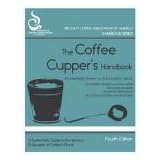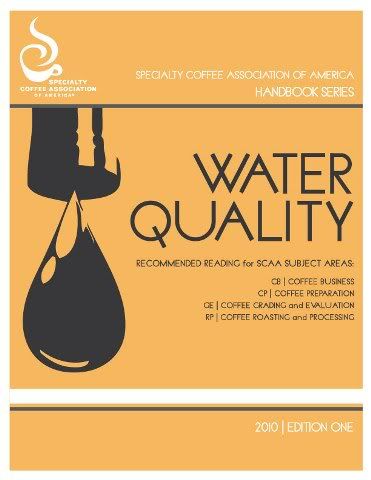So here's my list of books. Some of them are rubbish, and some are literally amazing in the depth of knowledge they summarize and pass on. I wasn't going to do a 'coffee books' post, but it seems a logical way to reference some of the methods I've used to learn more.
Starting a coffeeshop type books
 The first coffee book I bought. I think it's very good, if a little ... well, very... dated now. So many people want to open a coffeeshop and this book gives a decent account of the process it entails, by two people who made the leap in a very organised and professional way. They did their research, and the book helped me clarify what I would need to do, and how to do it. It's a daunting process, but this book provides inspiration, confidence and practical advice. It doesn't have all the answers of course, but it gets you started.
The first coffee book I bought. I think it's very good, if a little ... well, very... dated now. So many people want to open a coffeeshop and this book gives a decent account of the process it entails, by two people who made the leap in a very organised and professional way. They did their research, and the book helped me clarify what I would need to do, and how to do it. It's a daunting process, but this book provides inspiration, confidence and practical advice. It doesn't have all the answers of course, but it gets you started.
My next two books. I had a splurge on books at this point! Both good ones. Not much about coffee but tons of practical and well structured advice about planning the business, preparing to open, post-opening activities etc.
 The Coffee Boys are well known coffeeshop consultants, always running workshops at cafe events etc. Their books are fantastic as the boys (well... middle aged men!) share their knowledge of management theory alongside their own practical skills in running several businesses. It is very effective and it's easy to get quite swept along by how easy they make it all seem. Definitely good reference manuals for shop owners if you can avoid being hooked into their upsales techniques (well, they are consultants!). Not specifically at the speciality coffee market, and that is probably a good thing.
The Coffee Boys are well known coffeeshop consultants, always running workshops at cafe events etc. Their books are fantastic as the boys (well... middle aged men!) share their knowledge of management theory alongside their own practical skills in running several businesses. It is very effective and it's easy to get quite swept along by how easy they make it all seem. Definitely good reference manuals for shop owners if you can avoid being hooked into their upsales techniques (well, they are consultants!). Not specifically at the speciality coffee market, and that is probably a good thing.Barista books
So you get into coffee and eventually realise you need to read something a bit more detailed concerning how to make your coffee. There are three obvious buys. No need for details... they are all bibles.
Crap books
I bought these three books because the SCAE-UK advise on their website that they may be useful in coming up with signature drinks for the World or UK Barista Championships. Nothing could be further from the truth, and if you base any of your sig drinks on the ones in these books you will be openly sneered at by UKBC judges (they seem to sneer at everyone, but these books will guarantee a full on filthy look!). Total waste of money, the lot of them.
Home Roasting
I reached a point in my coffee brewing where I realised there was a limit to how well I could make coffee without knowing more about what happened to that coffee before it reached me. The way it is roasted affects how it extracts. This is an excellent book to read even if you don't plan to home roast. It includes some fascinating history of coffee (often coffee history is written in a very boring manner, but this is very readable stuff), processing methods used at origin and how it affects the green beans, a little about different regions, and of course heaps of good stuff about the hows, whys and whats of the roasting process.
Wider reading and Coffee Origins
Then there are what might easily be thought of as 'coffee table' books if you go by the title and cover, but they contain some very useful information about coffees around the world. Brilliant for gradually building up an understanding of the characteristics of coffees from different regions. The world is such a big place, and it takes time to properly understand the differences, and WHY they are different... along with the key growing areas in each country.
Now I need to be careful here. The version I have was published in 1981, so it is very obviously out of date. Farms and growing regions have changed enormously, as have processing technologies, and also the varieties grown. So my version book cannot be relied upon. But if you can find an updated version (eg the one shown is the 1996 version - still old but more useful) then there are still things to learn from it.
I love this book. It touches on history, tasting, roasting, grinding, brewing, and most of all has a Global Coffee Directory, that is up to date and gives a really nice overview of many different growing countries, along with a small map of key producing areas and typical ratings for Body, Acidity and Balance from the country's speciality coffees (if a national generalisation can be made).
Advanced Books
Well... advanced is a bit of a misnomer. Really these are beginners books, but they are for serious beginners - those who have been into coffee for a while, learned a fair bit, but now feel ready to gain a much deeper understanding of coffee. After reading (and re-reading!) these books, I think it's fair to say that the reader will be well on the way to becoming very knowledgeable about coffee. In the US these are required reading for SCAA qualifications. Sadly here in the UK baristas seem to be disinterested in this level of detail. I'm not sure why, but perhaps because these books may seem like less 'fun' because of their detailed content. But I think they are worth knuckling down to... worth the extra concentration it takes to fully comprehend and then make use of the learning they provide. I hope for two things: (a) that more people in the UK buy and read these books. (b) that the SCAE-UK will start to stock them for sale. I had to import mine from the US.














Nice list, have you considered the Flavour Thesaurus or similar for flavour combinations and pairings in signature drinks?
ReplyDeleteOh that's a great pointer :) It fits right in with some research I've been doing into foodpairing based on molecular mass. A lady called François Benzi has done some work on it that I believe Heston Blumenthal became interested in at one point.
DeleteThanks very much!